KCSM jazz man has been a nightclub owner, Oakland Raiders player , reporter and marriage counselor – but music is what makes his soul sing
It’s a typical Saturday morning for Sonny Buxton. He’s up early, fixes himself a bowl of oatmeal and gathers up a stack of CDs he’s going to play during his morning broadcast at KCSM. By 8.45, his son is at the door of his South San Francisco home, and they drive to the College of San Mateo, where the station has its home.
Buxton, 84, has been a fixture in the Bay Area jazz scene for decades. He’s owned a popular nightclub, played the drums professionally, lectured and taught jazz-related courses at Stanford and the Fromm Institute, and worked as a talk show host and reporter for KGO Radio and television.
At a time when much of radio is formulaic, Buxton controls his playlists. And while KCSM has an extensive collection of jazz recordings, he prefers to bring his own, emphasizing the work of greats like Duke Ellington, Charlie Parker and Billy Strayhorn. “I call myself the gatekeeper,” he said.
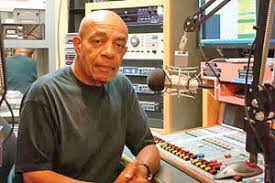
His resume includes a stint as a marriage counselor and five years as a defensive back with the Oakland Raiders. Varied as his career has been, Buxton says the unifying theme has been his desire to meet and overcome challenges. “I have to get flattened first and then go at it again.”
Buxton dreamed of being the next Gene Krupa, one of the 20th century’s best-known drummers. Instead, he drifted into broadcasting: “It was almost an accident,” he said. Accident or not, becoming a broadcaster meant defeating more than the usual professional challenges.
“I was a stutterer; I’m still a stutterer. People would tell me you are crazy to think of going into broadcasting,” Buxton said. That didn’t stop him. Much like the protagonist of the movie the “King’s Speech,” he worked with a speech pathologist, doing exercises with a metronome, and filling his mouth with pebbles and declaiming over the roar of the ocean. “The king had it worse than me,” Buxton joked.
Facing inequality
Buxton was introduced to broadcasting while an intern at a small station in Los Angeles. He later did a stint as a late-night disc jockey, hosting the “House of Bamboo” for Armed Forces Radio while stationed in Japan with the Air Force.
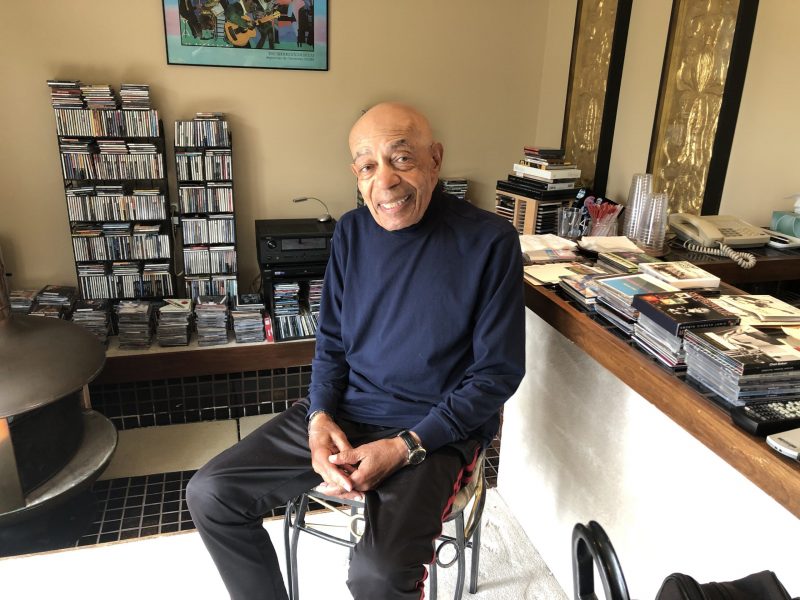
Those early experiences were good ones, and Buxton saw a career path. But the ingrained racism of the radio industry was a formidable obstacle. Earning an engineer’s license, a requirement for many broadcasting jobs, should have helped him enter the business. License in hand, he sent a demo tape to a Berkeley radio station.
Management liked it and invited him to an interview. “But when I arrived, everything changed. The manager’s jaw dropped when he saw me,” said Buxton, the son of Jamaican immigrants.
“He started talking about ‘negro radio,’ and let me know I wouldn’t fit in. As I was leaving, I turned around and saw him toss my stuff into the trash.” Buxton was angry but not discouraged: “I thought someone is going to hire me on my own terms.”
Buxton learned more about inequality when he moved to Los Angeles. “Until then, I hadn’t thought about racism in the music industry. There was a black musicians’ union and a white musicians’ union,” he recalled. “I was dismayed,” to find out how few black musicians could get jobs in Hollywood. Buxton performed in the club scene and was warned to never be seen leaving with a white woman. “The police will nail you,” he was told.
Teaching the truth
That first-hand knowledge of racism infuses Buxton’s approach to teaching. During his recent Fromm Institute class on jazz vocalists, he recounted how Lena Horn was blacklisted for her outspoken advocacy of civil rights and her refusal to portray maids or other stereotypical roles in Hollywood productions. White and black performers, Buxton said, were forbidden to touch one another on-screen, and scenes of black singers were often cut from movies when they were shown in the South.
Indeed, the stereotypical images of black performers can be traced as far back as the 1850s, when a white entertainer named Dartmouth Rice donned black face and performed as a character he called Jim Crow, Buxton said.
He has a rich store of anecdotes and livens his classes with a carefully curated collection of videos to showcase performances of jazz greats. Racism in Hollywood and the music industry is a recurring theme in this class, as is his personal story. “I appreciated his ability to blend his personal experiences and research to present material without bitterness,” said Marylyn Tesconi, a retired Department of Motor Vehicles manager who was in the class.
There has been progress, Buxton said, but not enough. “The barriers are lower to some extent, but they are still out there. Most of the (jazz) critics are still white,” he said. “You have jazz studies programs all over the world; most of the people in charge of them are still white.”
Buxton isn’t much of a techie, but he’d likely endorse the Silicon Valley mantra of “fail fast and break things.” His first entrepreneurial venture was a coffee house in Seattle that featured jazz at night. ‘I fell on my face and lost all my money in about six months,” he said.
A man of many talents
Lessons learned, he later owned successful clubs in several cities. He didn’t become the next Gene Krupa, but he did get to play drums for Billy Strayhorn, best known for his composition of “Take the A Train.”
He was close to missing the cut when he tried out for a basketball team in the Air Force. “I wound up as the 11th man,” Buxton said. Realizing basketball wasn’t his best sport, he turned to football, playing for Washington State University and Long Beach State College. He succeeded so well that he was drafted by the Oakland Raiders and played five seasons. At one point, Al Davis, then the team’s owner, confronted him, saying he didn’t seem dedicated.
Davis was right, Buxton concedes. “I was a dilettante. While waiting to work with a trainer in the locker room, I would use the down-time to read. That didn’t go over well with Coach Davis because it wasn’t about football formations. As I told him, ‘Those books are about life. I’ve got to know where I’m going after this.’”
Jobs in broadcasting followed. Although he had a background in jazz, Buxton refused to be pigeonholed and hosted country and western and bluegrass programs for a time. “It was a challenge,’” he said. Later he got a job as a reporter, becoming he believes, the first black television reporter in the Pacific Northwest.
Buxton has worked at a host of stations in the Pacific Northwest and the Bay Area and has run jazz clubs in Seattle and San Francisco. In 2013, the Jazz Journalists Association honored him with the Jazz Hero Award for his contributions to broadcasting. His morning gig at KCSM is four hours – 10 a.m. to 2 p.m. – on Saturdays, but Buxton says he’s content doing just one show a week.

If there’s such a thing as a music appreciation gene, the Buxton clan seems to have it. Buxton’s uncle was Noble Sissle, a well-known bandleader before World War II, who produced the first successful all-Black musical on Broadway. His younger son is a jazz fan and often hangs out in the station while his dad broadcasts. A grandson majored in broadcasting and lives in the Seattle area, where Buxton, now divorced, was born.
Although his knowledge of jazz is broad, his tastes favor the mainstream. On a recent Saturday morning, he began his show with tracks from Kenny Washington, The Vanguard Jazz Orchestra, Jimmy Cobb, and Bill Evans. Says Buxton: “I try not to play outside the basic boundaries. And I won’t play stuff you can’t tap your feet to.”
There may be a book in Buxton’s future. “I started writing a book 12 years ago. It’s a memoir,” he said. Like a lot of people, Buxton thought the forced downtown during the pandemic would give him the space to finish his project. But it’s still a work in progress.



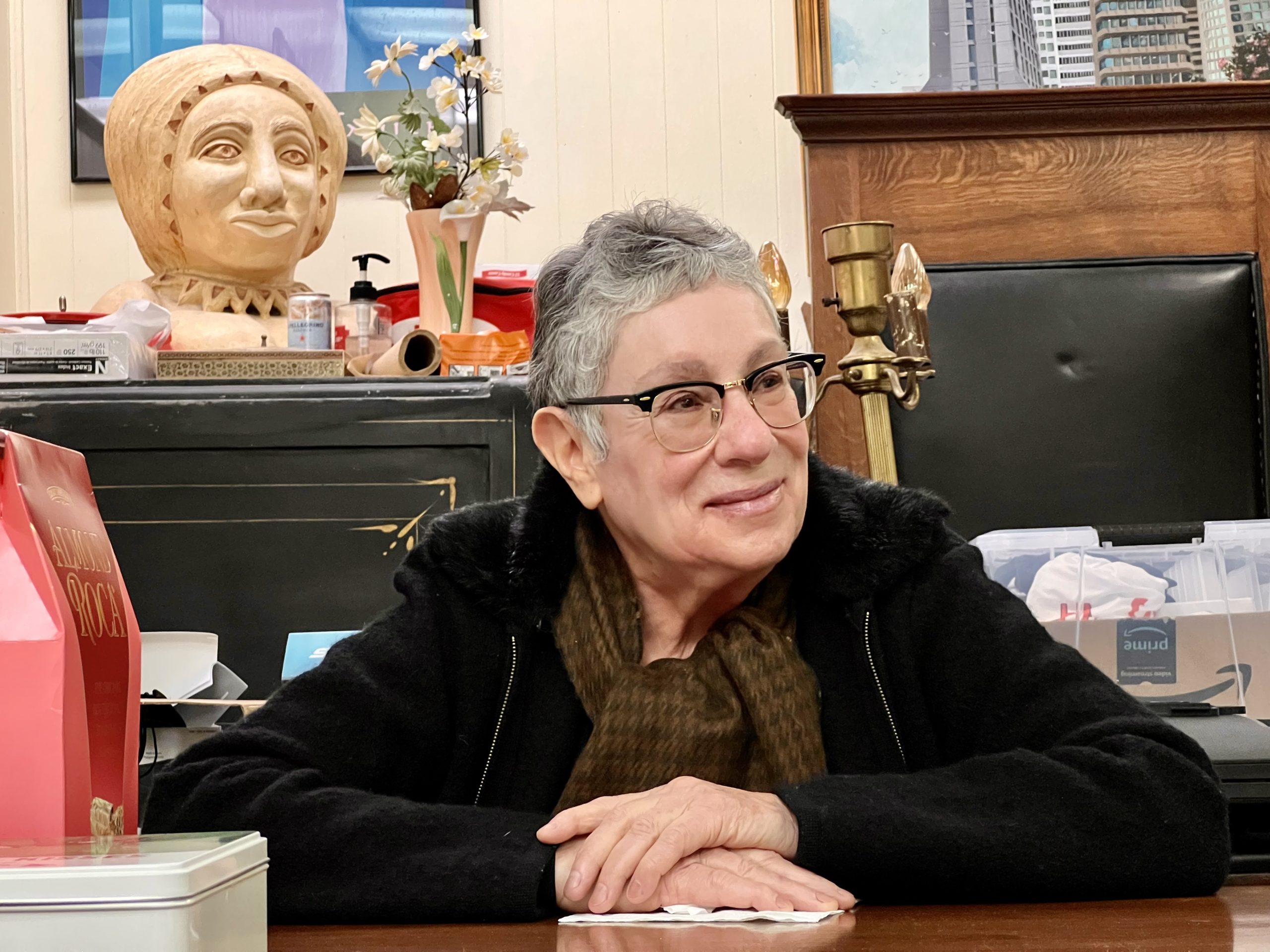
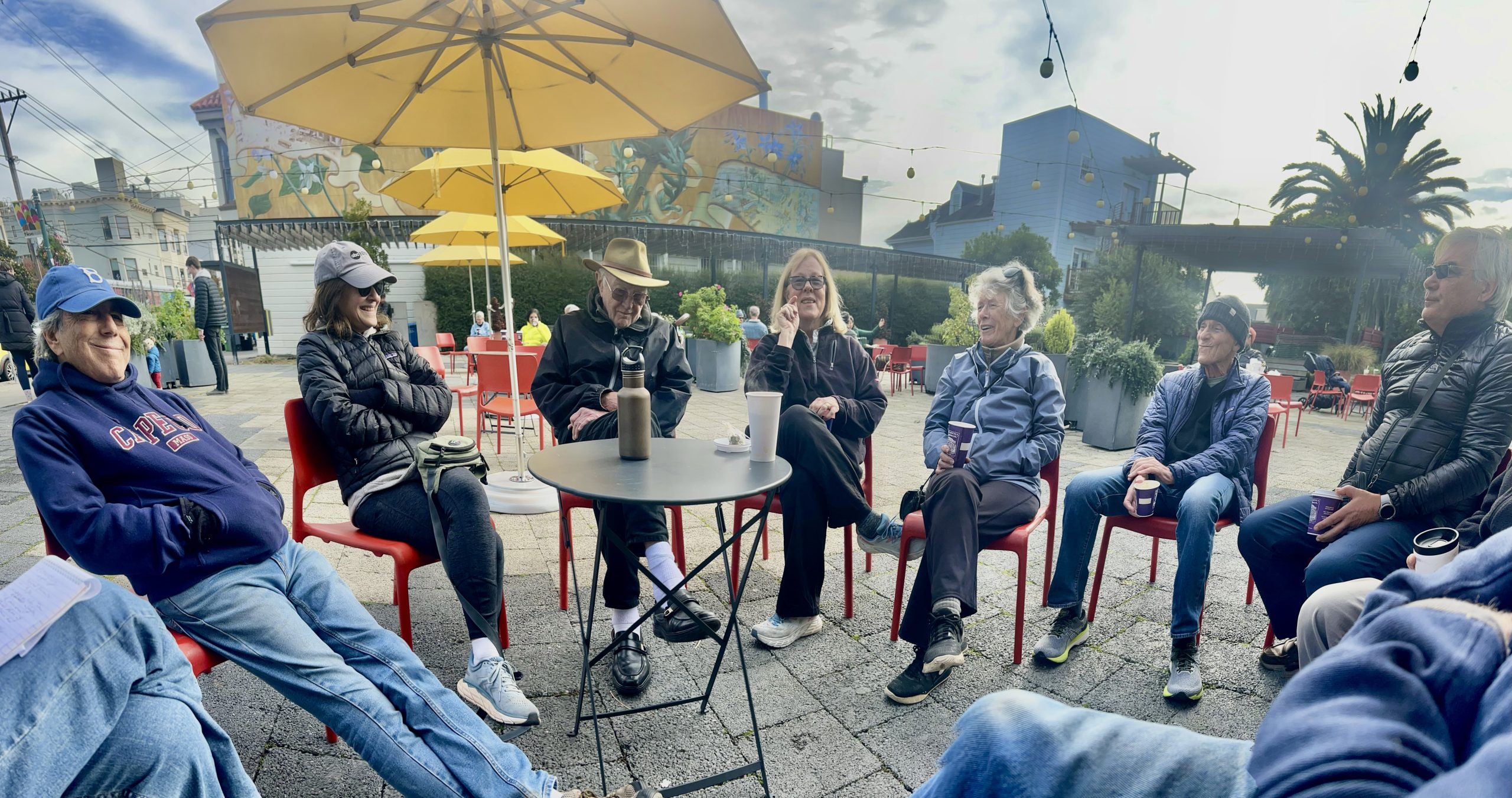
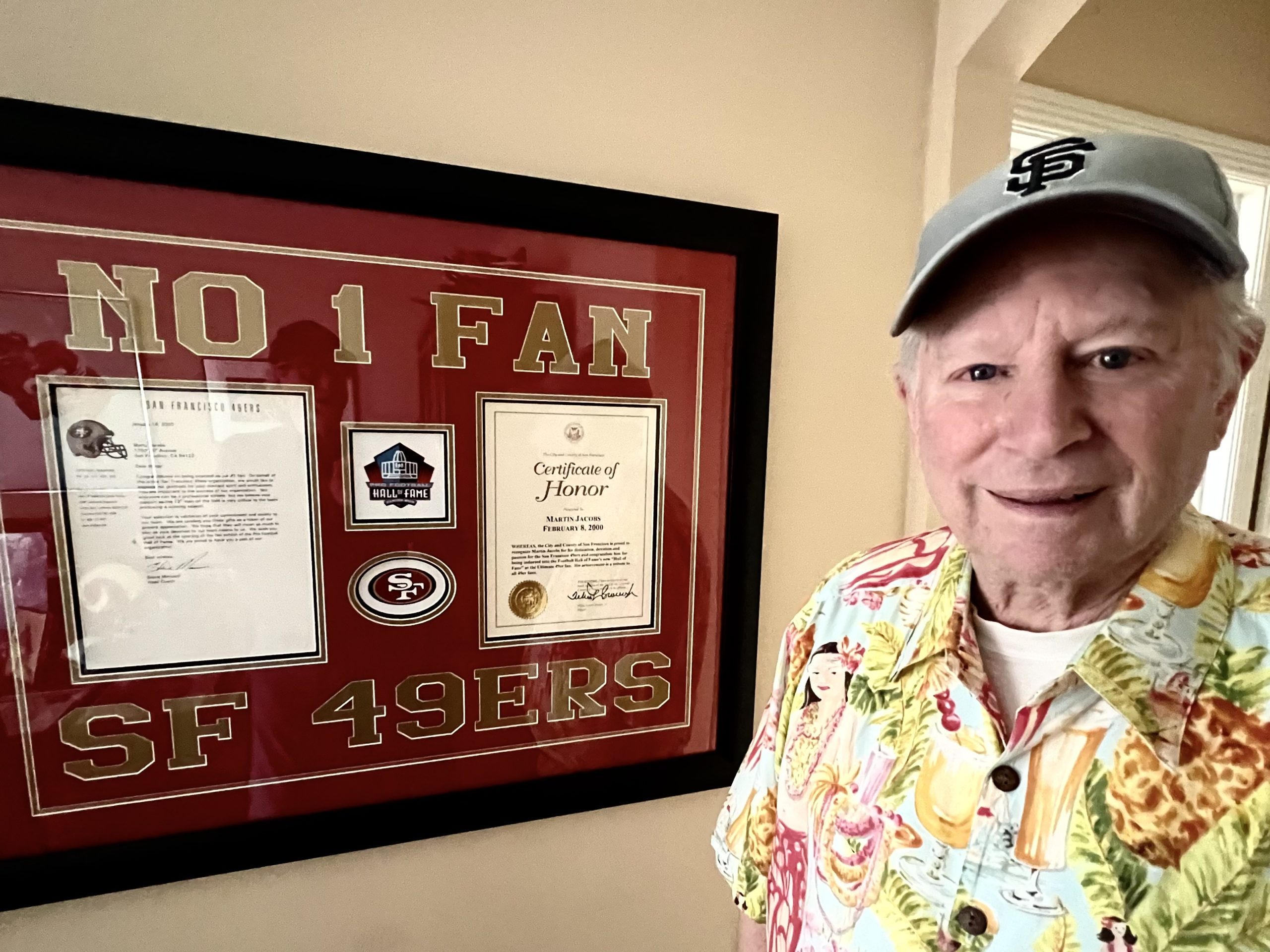
Rob Catterton
Great article. I used to live in North Beach, and remember Pearl's as an amazing spot for live jazz. Never knew about the Raiders connection, though!
Barbara
OOPS, I just realized I left one of the "Ns" out of your name. Forgive me... doing too many things at once. :o( BR
Barbara Rodgers
Sony, you and I have met a couple of times in the past, but I didn't know that we are neighbors and it looks as though we have been for about 25 years. One day we should do lunch. :o) I enjoyed reading this article about you and we have many similar life experiences. I also enjoy listening to your jazz program on KCSM when I can. Take care and continued success, Barbara Rodgers (retired from KPIX TV 5)
Sidney Ford, III
I'm a black musician and have experience a lot of racism in music. I taught 20 years in the Bay area and performed 10 years with the Golden Gate Park Band. I'm as active as I can be, but racism is a block that makes it hard to perform. Enjoyed reading about you. Please keep up the good work.